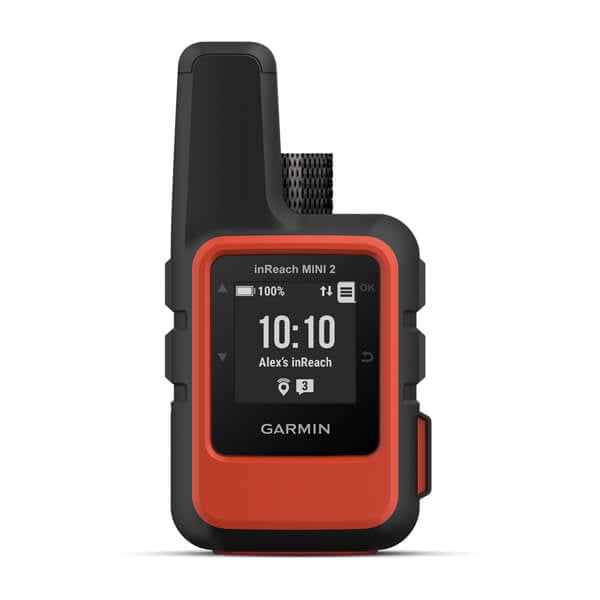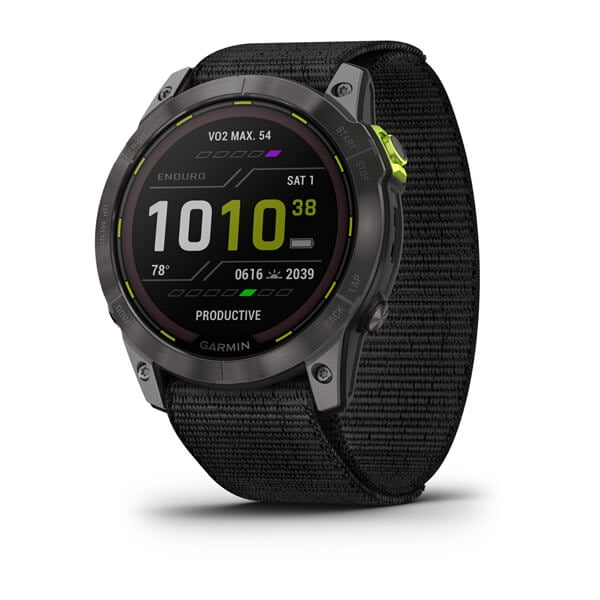
Athlete Sets World Record for Alps Run with Garmin Products
Jake Catterall stood alone on a mountain in the Alps when night fell. He wasn’t supposed to be alone.
The ultradistance athlete, equipped with the Garmin Enduro™ 2 multisport watch and the inReach® Mini 2 satellite communicator, was partway through his latest challenge: A 35-day trek through the Alps from Italy to Monaco, becoming the first to run the new Via Alpina trail for 1,243 miles and the elevation equivalent of more than 12 times the height of Mount Everest.
After he ran nearly 35 miles, he was supposed to meet his team — a crew of two traveling in a van with his equipment, food and chocolate milk — that evening at the top, but they were stuck at the bottom of the mountain. Catterall would have to run more than 9 miles to the next meeting point, all in complete darkness on a mountain.
That’s when he realized he didn’t have any nighttime equipment or food — not even a headlamp.
Say yes to what you love

Five years ago, Catterall had a “quarter-life crisis.” He wasn’t putting his heart into something fulfilling. His friends had a similar problem: They didn’t have a goal or dream. He realized he needed to choose his own.
He found his new life purpose. Catterall promised himself that one day he would cross Antarctica. He’s been building up to that ever since, documenting his journey along the way as he cycled around Iceland and ran across Europe.
The idea for crossing the Alps came after the Europe run, during a visit with his parents in the U.K. He was exhausted. His mom joked that since he had already run across Europe, he might as well run across some mountains. He seized on that idea.
Catterall searched for long mountain runs the next day and found the Pacific Crest Trail (which crosses the Cascade and Sierra Nevada mountain ranges in the U.S.) and the Via Alpina trail in the Alps. He’d always wanted to visit the Alps in the summer. The decision was made.
Catterall said he’s been called crazy his whole life. And his mom is a little more used to his “crazy decisions.”

After deciding to cross Antarctica, Catterall started training with “small” ultramarathons of just more than 62 miles, then increased those to 125 miles. He cycled around all of Iceland, covering almost 870 miles in 63 hours.
In 2023, Catterall spent 93 days covering almost 3,517 miles running across Europe — yes, the whole continent — from Norway to Spain.
He posted online inviting people to join him. And they did, from hundreds of people joining at once to one person tagging in for a few hours. He constantly heard that people were glad they “said yes” to joining him. He planned to dedicate his next project, the Alps run, to that idea.
“Say yes to more of what you love,” Catterall said.
On one particularly tough day during the Alps run, he was dealing with negative self-talk. He zoomed in on his Enduro to check his route and saw a tiny blue dot. It was an area he could skip, but Catterall took on the extra mileage. And he was rewarded for it.
Catterall stepped into a magical scene: The sun glinted off a blue glacier lake as ibex goats roamed nearby.
“I remember just being like, wow, every time you choose the harder thing, and you go after it and you just say yes and go, you’ll end up being rewarded some way or another,” Catterall said.
After visiting his parents, Catterall returned home to Amsterdam in the mountain-free Netherlands.
That made the logistics of training to spend more than a month running up and down mountains a challenge. He spent hours training on a stair-stepper, even carrying 33 pounds (15 kilograms) on his back, followed by steep uphill treadmill work.
About a week before Catterall left for his trip, he learned the route had been redesigned. A few people already started walking it, the director of trails for Via Alpina told him, but Catterall could be the first to finish if he ran.
How Garmin tech helped

The trail took him through green mountain valleys dotted with yellow flowers, across rocky streams and along steep mountainside drop-offs with only a chain to hang onto.
Catterall said his inReach 2 Mini was critical. He used it to share his route live through the Garmin Explore™ app. His team used it to plan where they would take pictures and videos of Catterall running by. And it was the only way his team could find him when he didn’t have signal — which was often.
“Some days I felt quite alone,” Catterall said. “Like, if I fall now, there aren’t even any goats around to come and pick me up. Having that SOS button did make me feel pretty good if anything went severely wrong.”
Catterall spent 10 hours each day running through the mountains using the GPS on his watch. Thanks to the solar charging, his battery would only drop by around 25%, he said, “which I think is unbelievable.”
Catterall charged the watch every two days, mostly out of caution. (The Enduro 2 lasts up to 34 days in smartwatch mode — with an added 12 days with solar charging — and up to 150 hours in GPS mode with solar charging).
His Enduro 2 saved him decision-making time each day, he said. He would come across people at signposts comparing maps trying to choose which way to go. He’d speed past them without stopping.

“Everyone was like, oh, he must be a local or something, and I’m like, I’ve just got my watch,” Catterall said.
He surprised himself with how much he relied on the watch’s flashlight, from using the bathroom to trying to find his clothing after a nighttime shower.
On the mountain alone that pitch black night, Catterall first tried to use his phone’s flashlight. It wasn’t strong enough. He turned to his Enduro 2.
With the map feature facing up so he could see his route, Catterall held the watch “like a torch” and ran.
“It was the best safety net,” Catterall said. “I would have really had an issue if I didn’t have it.”
A few hours later, he reunited with his team.
Catterall said it feels great to be the first to finish the new route because he’s set a goal for others. And now, he said, he has a target on his back. Other trail runners reached out to him saying they plan to beat his world record.
When others see him pursuing his dream, he hopes they’re inspired to follow their own. If someone on the trail happened to see Catterall running by at a relentless pace, he hoped that would motivate them.
“You’re in that moment of, like, ‘I would love to do something for myself,’” Catterall said. “And then you see someone who is like, ‘you can do it. Watch what I’m about to do.’”
As for what’s next, Catterall’s looking for his next adventure on his way to Antarctica — this time, with even more risks.








